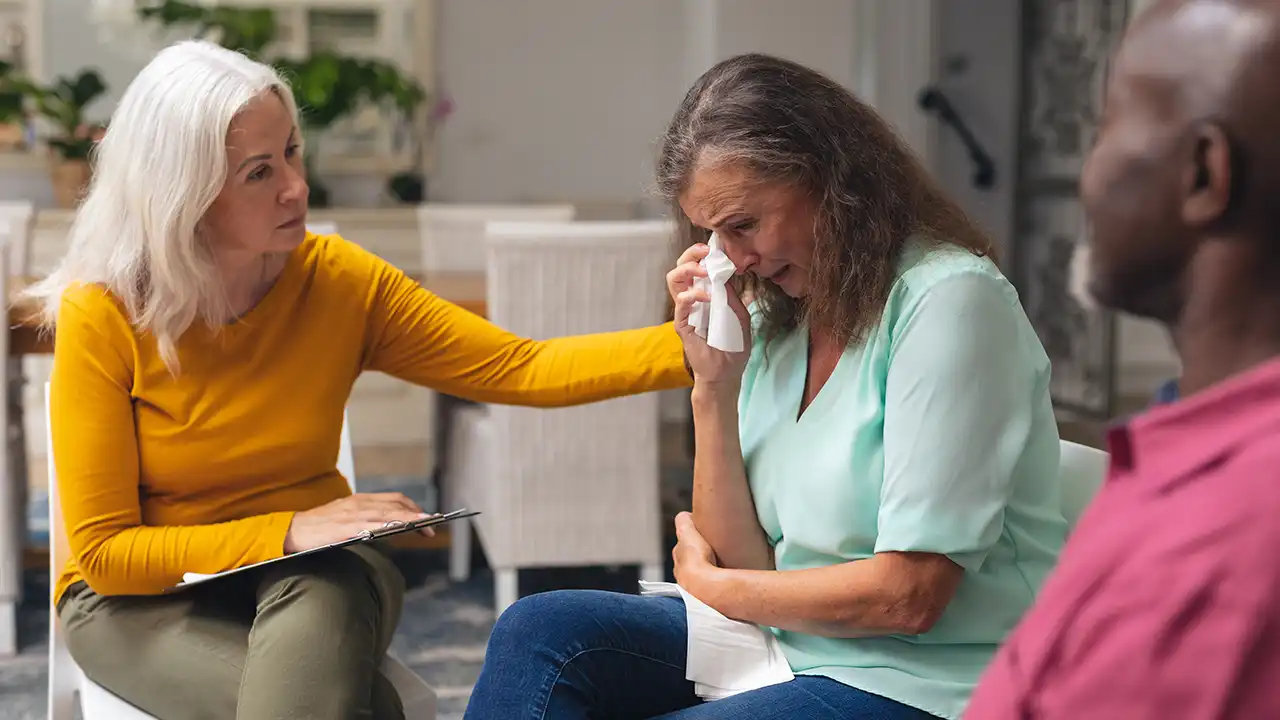Grief isn’t just about mourning the loss of someone we love—it’s about learning to live with absence, with change, and with pain that doesn’t always make sense to the outside world. With Grief Awareness Day on August 30th, we recognize that grief is a mental health journey, one that deserves time, space, and understanding.
Whether it’s the death of a loved one, a life transition, or the loss of a dream, grief touches everyone and yet, we often struggle to talk about it. Today, let’s open the conversation, remove the shame, and remind those grieving: You are not alone.
What Is Grief?
Grief is the emotional response to loss. It’s not a linear process, and there’s no right or wrong way to grieve. It can show up as:
- Deep sadness or numbness
- Anger or irritability
- Anxiety or fear about the future
- Guilt or regret
- Physical symptoms like fatigue, appetite changes, or sleep issues
- A sense of disconnection or loneliness
Sometimes grief comes in waves. Sometimes it feels like it will never leave. That’s normal. Grief is as unique as the person experiencing it.
Why Grief Is a Mental Health Concern
Grief and mental health are deeply connected. While grief is not a mental illness, prolonged, complicated, or unsupported grief can lead to:
- Depression
- Anxiety disorders
- Post-traumatic stress
- Substance use
- Suicidal thoughts
When grief is dismissed or rushed, people may suppress it, only for it to resurface later in unhealthy ways. That’s why mental health support during grief is not just helpful, it’s essential.
What Grief Needs
Time – Healing doesn’t follow a schedule. Let people grieve in their own time.
Listening Ears – Often, grievers don’t need advice; they need presence. Be there. Listen. Don’t try to fix.
Permission to Feel – Anger, relief, confusion, numbness—these are all normal parts of grief. Normalize the full range of emotions.
Support Systems – Whether it’s therapy, support groups, spiritual care, or trusted friends, grief heals better in community.
Mental Health Services – Therapists and grief counselors can provide a safe space to process complicated feelings and prevent long-term struggles.
Saying the Right Thing: Tips for Supporting Someone Grieving
- Instead of "At least they lived a long life," try: "I’m so sorry for your loss. I’m here if you want to talk or sit in silence."
- Instead of "Everything happens for a reason," try: "This is hard. You don’t have to go through it alone."
- Instead of silence, offer presence: A note. A meal. A memory. A kind text. Small gestures matter.
For Those Who Are Grieving
You’re not weak. You’re not broken. You’re grieving, and that’s an act of love. Healing isn’t about “getting over it.” It’s about learning to carry it in a way that still allows you to live, breathe, and find joy again.
If you’re struggling, reach out. Talk to a counselor. Call a friend. You don’t have to carry this alone.
You Matter. Your Loss Matters. Your Grief Matters.
Let this Grief Awareness Day be a reminder that behind every silent tear or hidden pain is a heart that deserves compassion, not judgment.
Need Support?
If you're experiencing intense grief or feel like you're not coping, help is available. Contact a local mental health provider, grief support group, or call the NAMI Helpline (1-800-950-NAMI) for guidance and referrals.



.png)
.png)